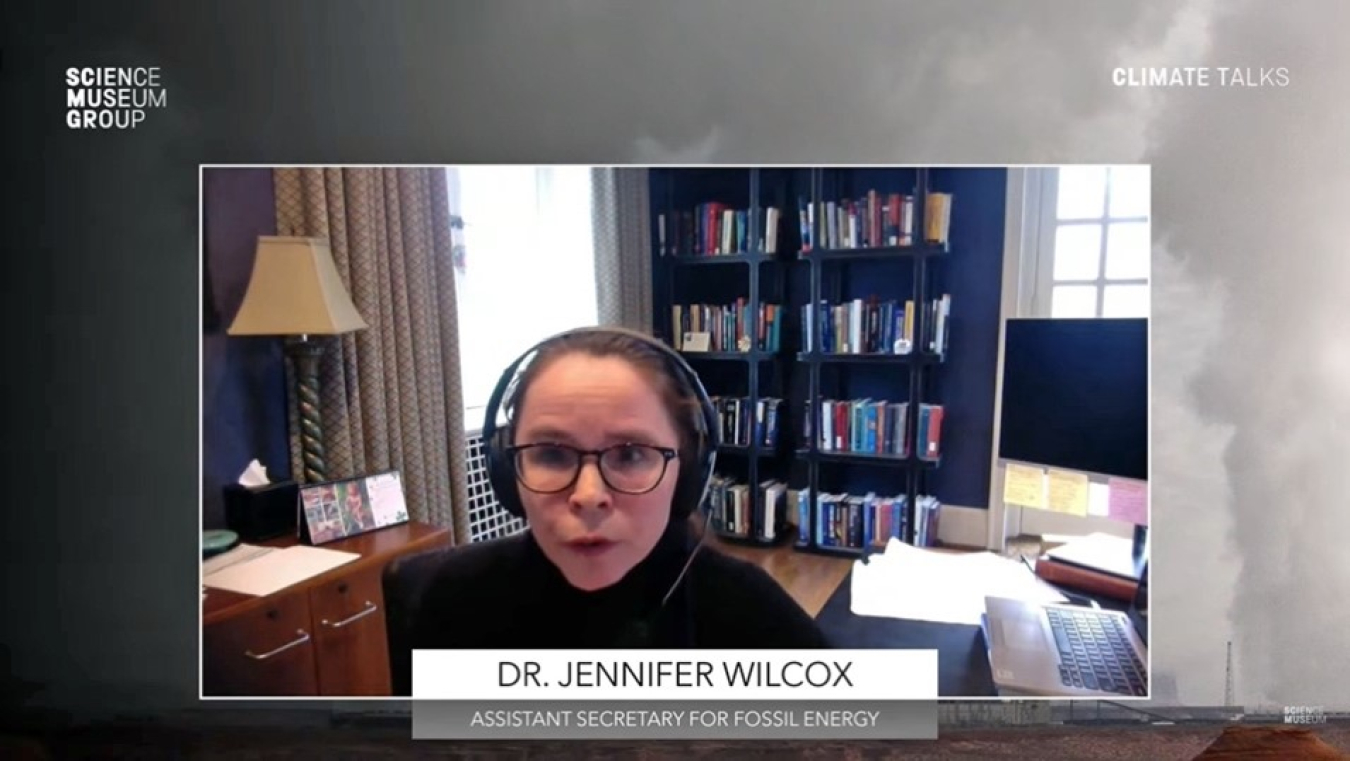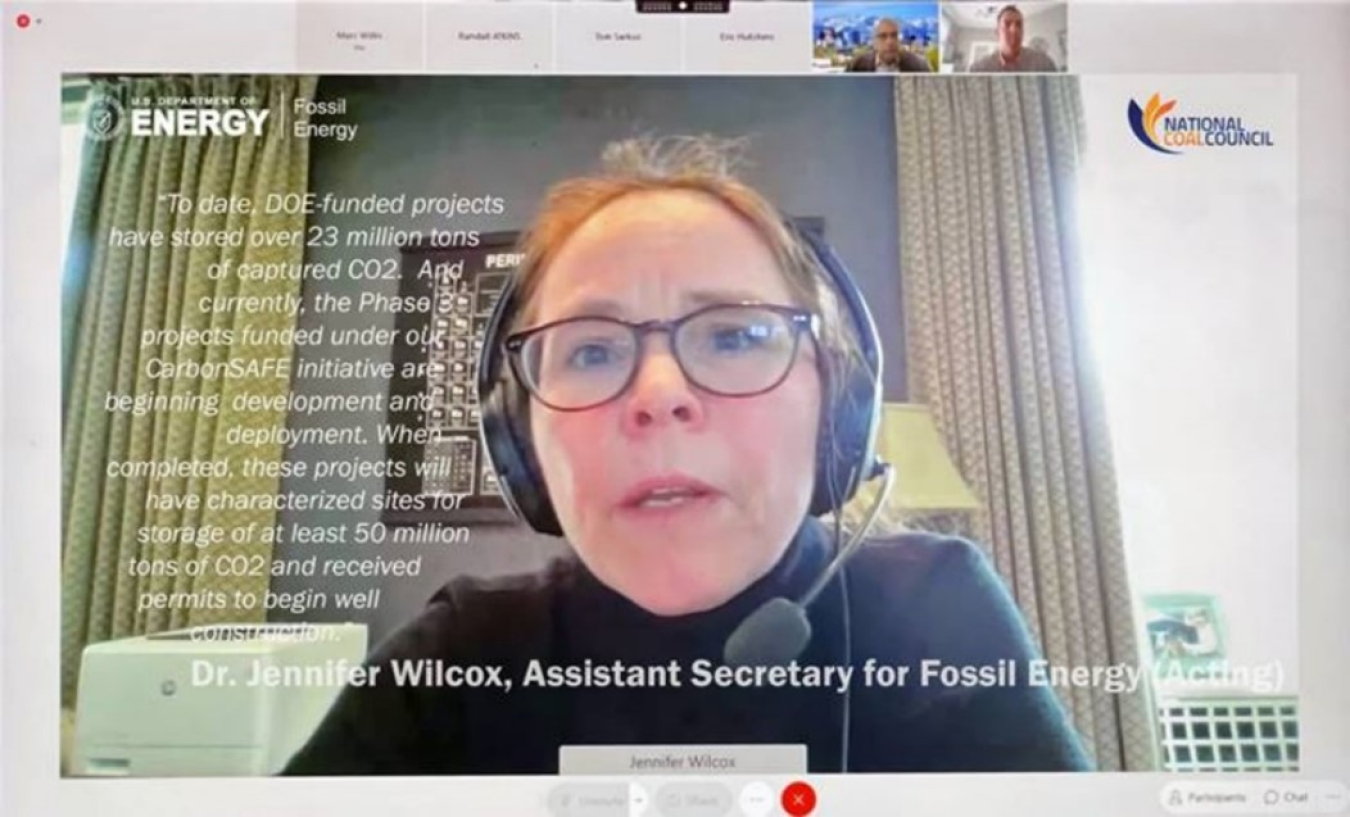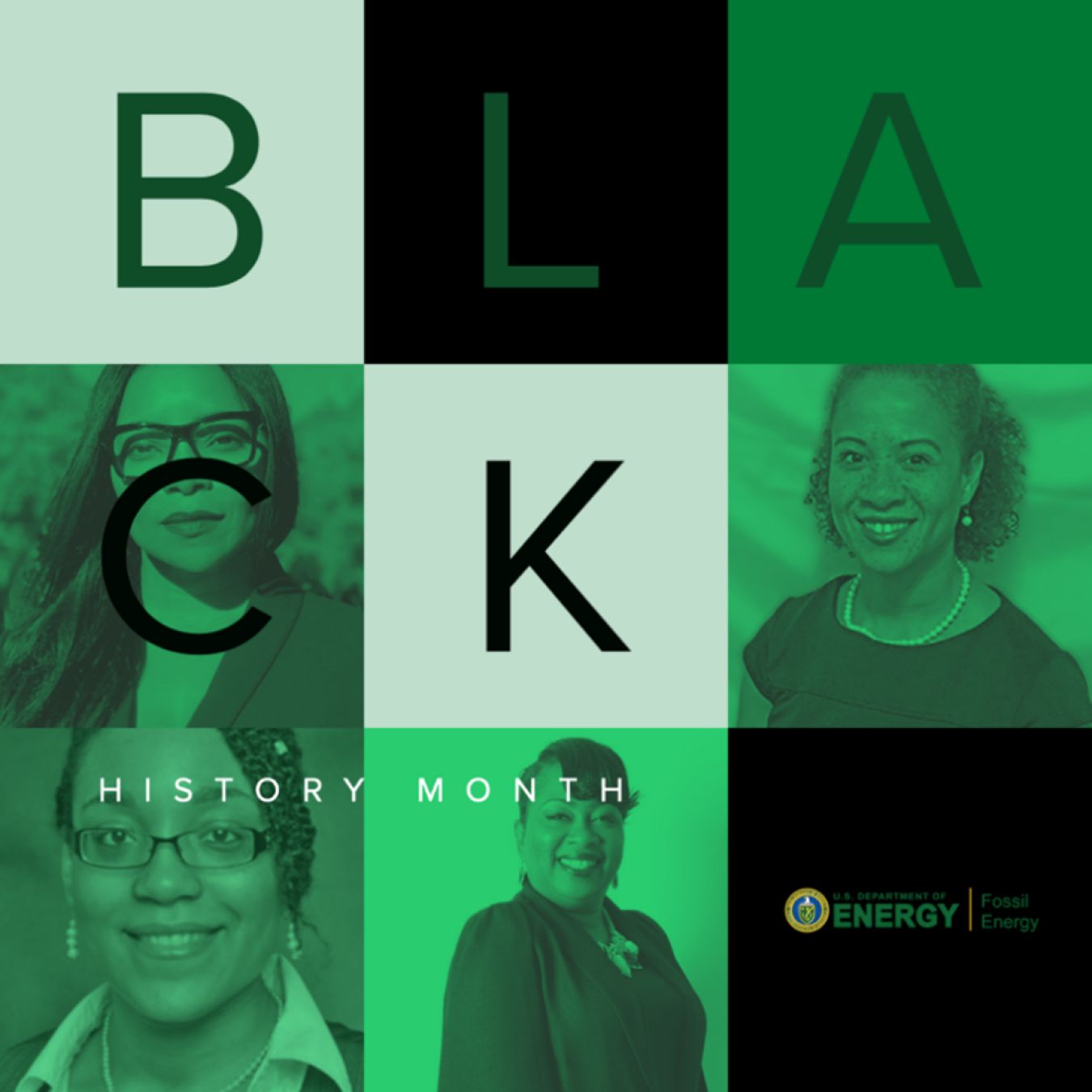Hello and welcome! The first five months of 2021 have been busy. Since January 20th, the Office of Fossil Energy (FE) welcomed our new Principal Deputy Assistant Secretary (PDAS), Dr. Jennifer Wilcox, who is also Acting Assistant Secretary for Fossil Energy (ASFE). In addition, we welcomed Chief of Staff Dr. Shuchi Talati, celebrated Black History Month and Women’s History Month, issued two funding opportunity announcements (FOA), announced five award selections totaling a combined $208 million and virtually attended a variety of events on behalf of the Department of Energy (DOE).
We hope you enjoy catching up on FE’s recent highlights so, ICYMI here they are:


WELCOME TO FE, ACTING ASFE AND PDAS DR. JENNIFER WILCOX AND CHIEF OF STAFF DR. SHUCHI TALATI
We welcomed our new Acting Assistant Secretary and PDAS Dr. Jennifer Wilcox and her Chief of Staff, Dr. Shuchi Talati. Both are eager to enact the vision of the Biden-Harris Administration and design FE’s path to a cleaner energy future.
Dr. Wilcox graduated from Wellesley College with a B.A. in mathematics. She earned her M.A. in chemistry and her Ph.D. in chemical engineering from the University of Arizona. Dr. Wilcox was the author of the first textbook on carbon capture, Carbon Capture, published in 2012. She also co-edited the CDR Primer on carbon dioxide removal, published in 2021.
Dr. Talati earned her B.S. in environmental engineering from Northwestern University, her M.A. in climate and society from Columbia University and her Ph.D. in engineering and public policy from Carnegie Mellon University. Dr. Talati was the 2017-2018 Congressional Science Fellow for both the American Association for the Advancement of Science and American Institute of Physics. During her fellowship, she worked on climate and energy issues as a staffer in the U.S. Senate. Before that, she worked at environmental non-profit organizations, including Carbon180 and the Union of Concerned Scientists, where she focused on climate and energy policies.
FUNDING OPPORTUNITY ANNOUNCEMENTS (FOAs)
FE issued two FOAs totaling $81 million:
- DE-FOA-0002405 – $6 million for Advanced Coal Waste Processing: Production of Coal-Enhanced Filaments or Resins for Advanced Manufacturing and Research and Development of Coal-Derived Graphite.
- DE-FOA-0002515– $75 million for Carbon Capture R&D for Natural Gas and Industrial Sources and Front-End Engineering Design Studies for Carbon Capture Systems at Industrial Facilities and Natural Gas Plants.
FUNDING OPPORTUNITY AWARDS
FE issued five award selection announcements totaling $127 million:
- DE-FOA-0002190 – $2 million for Research for Innovative Emission Reduction Technologies Related to Coal Combustion Residuals.
- DE-FOA-0002376 – $2 million for Enabling Gasification of Blended Coal, Biomass and Plastic Wastes to Produce Hydrogen with Potential for Net Negative Carbon Dioxide Emissions.
- DE-FOA-0002364 – $19 million for Carbon Ore, Rare Earth and Critical Minerals (CORE-CM) Initiative for U.S. Basins.
- DE-FOA-0001788 – $99 million for Fossil Fuel Large-Scale Pilots.
- DE-FOA-0002398 – $5 million for Investigation of Hydrogen Production, Water-Energy Nexus, Materials Supply Chain and 5G Wireless Technologies.


THE IMPORTANCE OF CARBON CAPTURE REMOVAL TECHNOLOGIES
Our new Principal Deputy Assistant Secretary and Chief of Staff are both very knowledgeable about carbon mitigation and removal technologies, including carbon capture and storage (CCS) and direct air capture (DAC), important pathways to address climate change and help the United States reach net-zero carbon emissions by 2050.
Dr. Wilcox virtually attended six events in recent weeks: the IEAGHGT-15 Virtual Conference, the UK Science Museum Group Climate Talks, the GEI EnergyInnovates Event Series, the National Coal Council Spring Annual Meeting, a webinar on the Role of Carbon Capture and Removal Technologies to Reach Net-Zero Emissions and the 21st Century Energy Transition Symposium. Dr. Wilcox urged increasing the use of CCS technology to combat climate change. If CCS is utilized strategically, the U.S. can make a successful transition to net-zero emissions. Developing CCS will bring better-quality jobs and economic benefits that exceed the costs of the technology.
“We are absolutely focusing on some of the tough-to- decarbonize sectors,” said Dr. Wilcox during the UK Science Museum Group Climate Talk. “If we can avoid the carbon emissions to begin with, we should always focus on doing that. Our next effort is looking at the cement, steel and industrial sectors and seeing how we can avoid those emissions.” Over the past year, FE has started to fund projects focusing on carbon removal – specifically direct air capture (DAC) using chemicals and mineralization.
During Dr. Wilcox’s keynote address at the National Coal Council Spring Annual Meeting, she highlighted FE’s recently announced FOA for the creation of products using waste coal as a feedstock. “The use of coal waste in additive manufacturing and graphite production aligns with the goals of the Biden-Harris Administration, to expand and develop existing and new environmentally stable uses for coal waste and deploying these technologies in economically distressed power plant and coal communities,” said Dr. Wilcox. This proposed technology will mitigate the environmental impacts associated with the use of coal.
On April 30, Dr. Wilcox spoke at a webinar hosted by the Carbon Utilization Research Council (CURC). Her topic was The Role of Carbon Capture and Removal Technologies to Reach Net-Zero Emissions. The webinar participants discussed the technologies and policies available for carbon capture removal.
Dr. Wilcox provided opening remarks, detailing the Biden-Harris Administration’s goals for capturing carbon emissions from natural gas plants and industrial manufacturing facilities, and noting that the Office of Fossil Energy’s work will help address climate change and reduce emissions. “In President Biden’s words, we have an opportunity to build back better – to build and deploy these important technologies,” said Dr. Wilcox. “Carbon capture on committed emissions infrastructure like natural gas fired power plants that likely won’t reach retirement age for another decade or two may be good candidates for CCUS – so we’re exploring the deployment of these technologies on natural gas systems, in particular.”

BLACK HISTORY MONTH SPOTLIGHTS
Black History Month is celebrated in February to honor the achievements of African Americans and to recognize their importance in U.S. history. This year, we focused on spotlighting members of the FE staff, Sheneé Turner and Author Gallow, whose exemplary work furthers FE’s mission every single day! Be sure to read our featured spotlights and see how Black History has shaped Sheneé’s and Author’s lives.

CELEBRATING WOMEN’S HISTORY MONTH
March is known as #WomensHistoryMonth, when we celebrate the women who persevered, broke down barriers and shattered glass ceilings to create a better, more inclusive America. From the women taking the lead in FE to the many female engineers and computer scientists at the National Energy Technology Laboratory (NETL), women are making significant impacts in the world of STEM. They continue to show that anything is possible!
ADDITIONAL FE NEWS UPDATES
- February 11, 2021 – DOE announces a Notice of Sale of crude oil from the SPR.
- March 5, 2021 – DOE announces contract awards from the SPR crude oil sale.
- March 12, 2021 – Dr. Bhima Sastri named a Fellow of AiCHe.
- April 16, 2021 – DOE announces a Notice of Sale of crude oil from the SPR.
- May 3, 2021 – DOE awards $17.3 million for workplace diversity and inclusive research opportunities.
We hope you enjoyed this quarter’s edition of ICYMI. For more content like this, sign up for our FE Newsletter. Thank you for reading and see you next quarter!

